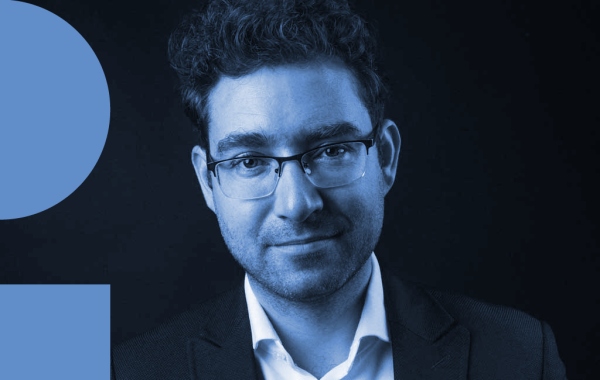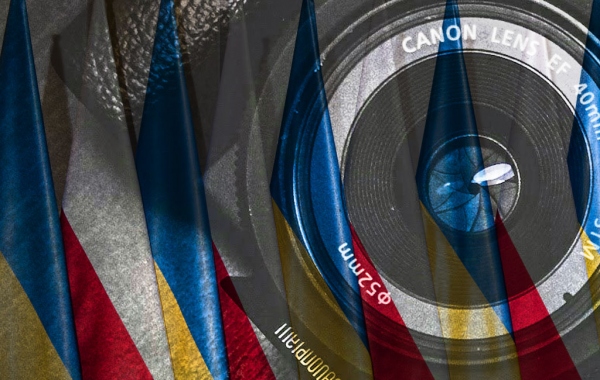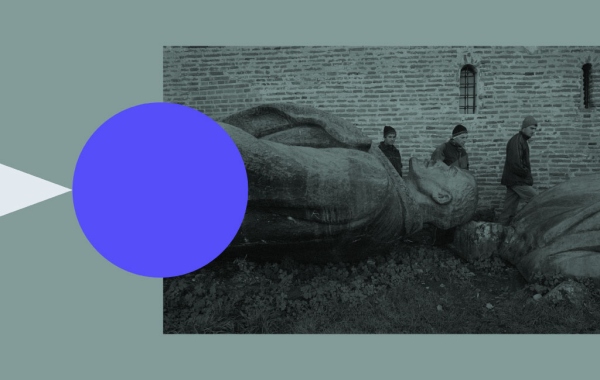‘Intercepted’ in Polish cinemas
The Mieroszewski Centre as co-organiser of screenings of the award-winning documentary Intercepted
The Mieroszewski Centre, together with the Nowa Polszcza portal, co-organised a series of screenings and discussions around Intercepted – a documentary directed by Oksana Karpovych, considered one of the most significant Ukrainian films of recent years. The film has received international acclaim at festivals such as Berlinale, Krakow Film Festival, CPH:DOX, and Hot Docs, and was awarded the Grand Prize at the WATCH DOCS Human Rights in Film Festival. As part of the programme, special meetings were held with Vladislav Zadorin – the defender of Snake Island, who spent 679 days in Russian captivity, enduring brutal torture and inhumane treatment.
A film you have to hear to believe
Intercepted is a documentary composed entirely of real intercepted phone calls between Russian soldiers and their families, recorded by Ukrainian intelligence. Despite the everyday tone of the conversations, they reveal the true brutality and moral collapse behind the war: looting, cruelty toward Ukrainians, impunity, and emotional numbness. The film presents the war from the aggressor’s perspective – and from that of the families who not only accept the violence, but often encourage it.
There are no gunshots or battle scenes. The film’s horror takes place off-screen, in seemingly banal exchanges that together expose the mindset of a society consumed by propaganda. It is this very contrast – between the calm tone of voice and the brutality of the content – that makes the film so deeply unsettling.
A testimony from captivity – Wladyslaw Zadorin
The screenings were accompanied by live conversations with Vladislav Zadorin – a soldier of the Ukrainian Marine Corps and defender of Snake Island, who was captured by Russian forces on 24 February 2022. He spent 679 days in captivity, held in seven different Russian prisons and penal colonies.
“We were beaten, suffocated, electrocuted. But the worst part wasn’t always physical. From morning till night, they played the Russian anthem. They told us Ukraine didn’t exist. They tried to break us psychologically – to erase our identity,” Zadorin said during the meetings.
“Twice they gave me a Russian passport to sign, telling me I could stay. But I only thought of my family. I wanted to go home, see my loved ones, drink coffee in Kyiv. Nothing more.”
Zadorin also spoke about the hunger that sharpened animal instincts, and about the first meal after being freed – a bowl of buckwheat porridge that he devoured until his body physically couldn’t take any more. He described the fear that remains, even when home seems safe again.
“For two months after I got out, I ate as if food would disappear again. I vomited, then kept eating. It took half a year for my body to understand that it was finally safe.”
Today, Zadorin travels the world to speak about the realities of Russian occupation and to raise awareness of the thousands of Ukrainian POWs still held in captivity.
“When Americans ask me whether the war is over, I realise how blind the world is. That’s why I speak out. Because if other countries don’t understand what is really happening in Ukraine, we will disappear. And then you’ll be the ones dying.”
Special screenings and discussions
The Warsaw event was moderated by Zhenia Klimakin, editor-in-chief of Nowa Polszcza. In other cities, the discussions were led by Zoriana Varenia, a journalist specialising in Ukrainian affairs. Polish translation was provided during all events.
Special screenings with Wladyslaw Zadorin:
- April 3, 6:00 PM – Kinoteka, Warsaw
- April 4, 6:00 PM – Kino Muzeum, Museum of the Second World War, Gdańsk
- April 5, 6:00 PM – Kino Nowe Horyzonty, Wrocław
- April 5, 7:30 PM – Kino Astra, Oborniki Śląskie
























